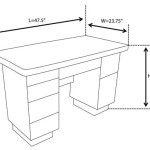What Are Water Retention Tablets Used For?
Water retention, also known as edema, is a common condition characterized by the accumulation of excess fluid in the body's tissues, leading to swelling. This swelling can occur in various parts of the body, most commonly in the legs, ankles, feet, hands, and abdomen. While mild cases of water retention may resolve on their own, persistent or severe cases can be uncomfortable and may indicate an underlying medical condition. Water retention tablets, also known as diuretics, are medications designed to help the body eliminate excess fluid through increased urination. This article will explore the uses of water retention tablets, the different types available, potential side effects, and important considerations before using them.
Diuretics function by acting on the kidneys to increase the excretion of sodium and chloride. These electrolytes play a crucial role in regulating the body's fluid balance. When the kidneys excrete more sodium and chloride, water follows, leading to increased urine output. This reduction in fluid volume can help alleviate the symptoms of water retention, such as swelling and bloating.
Understanding the Different Types of Water Retention Tablets
Various types of diuretics are available, each with a slightly different mechanism of action and effectiveness. The choice of diuretic depends on the underlying cause of water retention and the individual's medical history. The most common types include thiazide diuretics, loop diuretics, and potassium-sparing diuretics.
Thiazide diuretics: These are often prescribed as a first-line treatment for mild to moderate water retention, particularly associated with conditions like high blood pressure. Thiazide diuretics work by inhibiting sodium reabsorption in the distal convoluted tubule of the kidney, leading to increased sodium and water excretion. Common examples include hydrochlorothiazide (HCTZ) and chlorthalidone.
Loop diuretics: These are more potent diuretics and are typically used for more severe cases of water retention, such as those associated with heart failure or kidney disease. Loop diuretics work by inhibiting sodium and chloride reabsorption in the loop of Henle in the kidneys. Examples include furosemide (Lasix) and bumetanide.
Potassium-sparing diuretics: These diuretics work in a different way, preventing the body from losing too much potassium. They are often used in combination with thiazide or loop diuretics to help maintain potassium levels. Potassium-sparing diuretics can be divided into two main categories: aldosterone antagonists (like spironolactone and eplerenone) and epithelial sodium channel blockers (like amiloride and triamterene). Aldosterone antagonists block the action of aldosterone, a hormone that promotes sodium retention and potassium excretion. Epithelial sodium channel blockers directly inhibit sodium reabsorption in the collecting tubules of the kidneys.
The selection of the appropriate diuretic type requires careful consideration of the patient's medical history, current medications, and the severity of their water retention. A healthcare professional will assess these factors and choose the most suitable option.
Common Conditions Treated with Water Retention Tablets
Water retention tablets are prescribed for various medical conditions where excess fluid accumulation is a significant problem. These conditions range from chronic illnesses to temporary states caused by lifestyle factors. Understanding the specific conditions where diuretics are beneficial is crucial for appreciating their therapeutic role.
Heart Failure: Heart failure is a chronic condition where the heart is unable to pump blood effectively, leading to fluid buildup in the lungs and other parts of the body. Diuretics are a cornerstone of heart failure treatment, helping to reduce fluid overload and alleviate symptoms like shortness of breath and swelling. Loop diuretics are often used in heart failure due to their potent diuretic effect.
Kidney Disease: Kidney disease can impair the kidneys' ability to regulate fluid balance, leading to water retention. Diuretics can help manage fluid overload in individuals with kidney disease, particularly in cases where kidney function is significantly reduced. The type of diuretic used will depend on the stage of kidney disease and the individual's overall health.
High Blood Pressure (Hypertension): Thiazide diuretics are commonly used as a first-line treatment for high blood pressure. By reducing fluid volume, diuretics can lower blood pressure and reduce the risk of cardiovascular events. However, they are not always the only medication used and may be combined with other antihypertensive drugs.
Liver Disease (Cirrhosis): Cirrhosis, or scarring of the liver, can lead to fluid accumulation in the abdomen (ascites) and legs (edema). Diuretics, particularly spironolactone, are often used to manage these complications of liver disease. The management of ascites typically involves a combination of diuretics and dietary sodium restriction.
Premenstrual Syndrome (PMS): Some women experience water retention as a symptom of PMS, leading to bloating and discomfort. While diuretics are not typically the first-line treatment for PMS-related water retention, they may be used in some cases to provide relief from severe bloating.
Idiopathic Edema: This condition is characterized by unexplained swelling, usually in the legs, ankles, and feet. Diuretics may be used to manage the symptoms of idiopathic edema, although the underlying cause is often unknown.
It is important to note that diuretics should only be used under the guidance of a healthcare professional. Self-treating water retention without proper diagnosis can be dangerous and may mask underlying medical conditions.
Potential Side Effects and Considerations
Like all medications, water retention tablets can cause side effects. The type and severity of side effects can vary depending on the type of diuretic, the dosage, and the individual's overall health. It's important to be aware of these potential side effects and to discuss any concerns with a healthcare professional.
Electrolyte Imbalances: Diuretics can disrupt electrolyte balance, leading to low levels of potassium, sodium, or magnesium. Low potassium levels (hypokalemia) can cause muscle weakness, cramps, and heart rhythm abnormalities. Low sodium levels (hyponatremia) can cause confusion, nausea, and seizures. Potassium-sparing diuretics are designed to minimize potassium loss, but they can sometimes cause high potassium levels (hyperkalemia), which can also be dangerous.
Dehydration: By increasing urine output, diuretics can lead to dehydration if fluid intake is not adequate. Symptoms of dehydration include thirst, dizziness, and fatigue.
Dizziness and Lightheadedness: Diuretics can lower blood pressure, which may cause dizziness or lightheadedness, particularly when standing up quickly.
Increased Frequency of Urination: This is an expected side effect of diuretics, but it can be inconvenient and may disrupt sleep if the medication is taken too close to bedtime.
Kidney Problems: In some cases, diuretics can worsen kidney function, particularly in individuals with pre-existing kidney disease. Regular monitoring of kidney function is often recommended when taking diuretics.
Drug Interactions: Diuretics can interact with other medications, potentially altering their effectiveness or increasing the risk of side effects. It's important to inform a healthcare professional about all medications, supplements, and herbal remedies being taken before starting a diuretic.
Gout: Thiazide diuretics can increase uric acid levels in the blood, which may trigger gout attacks in individuals who are predisposed to this condition.
Before starting any diuretic, individuals should discuss their medical history, current medications, and any allergies with their healthcare provider. Regular monitoring of blood pressure, electrolytes, and kidney function may be necessary to ensure safety and effectiveness. It is also important to adhere to the prescribed dosage and to follow any dietary recommendations provided by the healthcare professional, such as limiting sodium intake.
In conclusion, water retention tablets are valuable medications in the management of various conditions characterized by excess fluid accumulation. Understanding the different types of diuretics, their uses, and potential side effects is essential for safe and effective treatment. Always consult with a healthcare professional to determine the appropriate course of action for water retention and to ensure safe and effective use of diuretics.

Holland Barrett Water Retention Tablets 60

Hri Water Balance Tablets Holland Barrett

Herbal Classics Water Retention 60 Tablets Mcgrocer

Water Retention Tablets Slimming Solutions

Herbal Classics Water Retention 60 Tablets Holland Barrett Ksa

Hri Water Balance Tablets 60 Count For

Otc Diuretic Water Pills Walgreens

Water Balance Tablets Retention Bloating Relief X60

Herbal Classics Water Retention 60 Tablets Reduce Bloating Balance 4 99 Pic

What You Need To Know Before Taking Water Pills Are Diuretics








